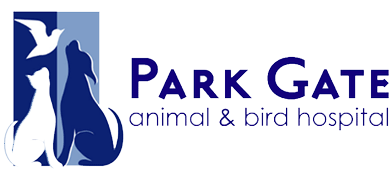It’s that time of year again when your house becomes the Griswold’s and lots of people (and their pets!) come over to tell your pets how cute they are. But some pets, specifically dogs, can get socially anxious around a lot of people at once. Here are some holiday visit tips with other dogs for nervous pets and avoiding social anxiety before it manifests.
The Cause of Social Anxiety in Dogs
Social anxiety is common in dogs rescued from puppy mills. It may also occur in stray dogs (those found on the street living on their own) or dogs rescued from abuse/neglect situations. Most of these dogs have had little or no human contact at all. Some have only had negative experiences with humans. When you take this type of animal and put him in a social setting, he may feel trapped and cornered. This often results in fear aggression. When a cornered dog experiences the biological fight-or-flight response, the only available action is to fight.
 Preventing Social Anxiety in Dogs
Preventing Social Anxiety in Dogs
Socialization is most successful when started early. Begin the puppy socialization process as soon as possible. This essentially trains your dog to handle himself in busy situations. A well-socialized dog is not fearful of crowds and plays well with other dogs. Start by taking your puppy out to different places.
It is best to do this after he has been fully immunized against Parvo and Distemper. By exposing him early to different sights, sounds, and people, you teach him young to accept these as normal, and you will have a happy, friendly dog who handles others well.
If you adopt an adult dog, you cannot be sure what he has been exposed to.
Don’t worry; you can still socialize an adult dog. In fact, you should start this process as soon as you bring your new dog home.
How To Help Dogs With Social Anxiety
If your dog is already the anxious type, you need to take careful steps to help overcome his fear. Start small. Begin by letting your dog meet one person at a time. Let your dog initiate contact. Be sure that your dog has a safe retreat he can go to if he feels overwhelmed. Reward him in the calm moments. Just remember to go slowly and reward for good behavior. Be sure not to comfort him when he is fearful, as this can reinforce the fearful behavior rather than help him overcome it.
Desensitizing a fearful dog is hard work. This can be a long, drawn-out process, but it’s well worth it. You will need to judge your own dog on how much he can handle at once. Some are fine indoors or in their own territory, but they panic at leaving home.
Through steady exposure, you should notice that your dog is relaxing more, as things become more familiar. Make every outing fun. If you take him down a busy street and he acts afraid, finish the outing at a place he enjoys (like a quiet park to play, or a walk down a quiet street). This way, he is less likely to fear outings in general.
Your dog may nev er learn to love being out in busy areas. However, he can learn to tolerate them if he can associate outings with the “good part” at the end.
er learn to love being out in busy areas. However, he can learn to tolerate them if he can associate outings with the “good part” at the end.
If your dog is anxious around other dogs, then be sure to keep him away from dogs when you do not have control over the situation. Avoid dog parks. Cross the street during walks if another dog is coming.
If you decide to introduce your dog to another dog, do so very slowly and carefully. Choose a calm, aloof dog that will seem non-threatening to your dog. Reward your dog for calm behavior. If your dog remains calm, you may gradually decrease the distance between the dogs and increase the time of exposure. At the first subtle sign of fear or anxiety, increase the distance between the two dogs or remove your dog entirely if necessary.
The goal here is to avoid letting the anxiety build up to a high level.
Your dog may never learn to enjoy the company of other dogs. However, he can learn to tolerate the presence of another dog at a distance. This process can take weeks to months. Be patient and keep it positive.
Merry Christmas/Happy Holidays!
Edited by Jenna Stregowsky/Edited by Corinne Reid

